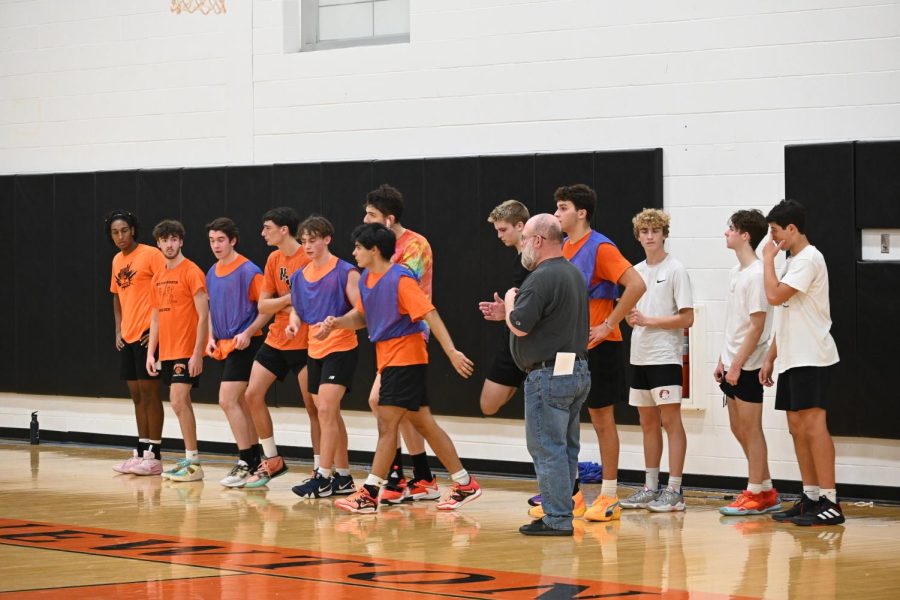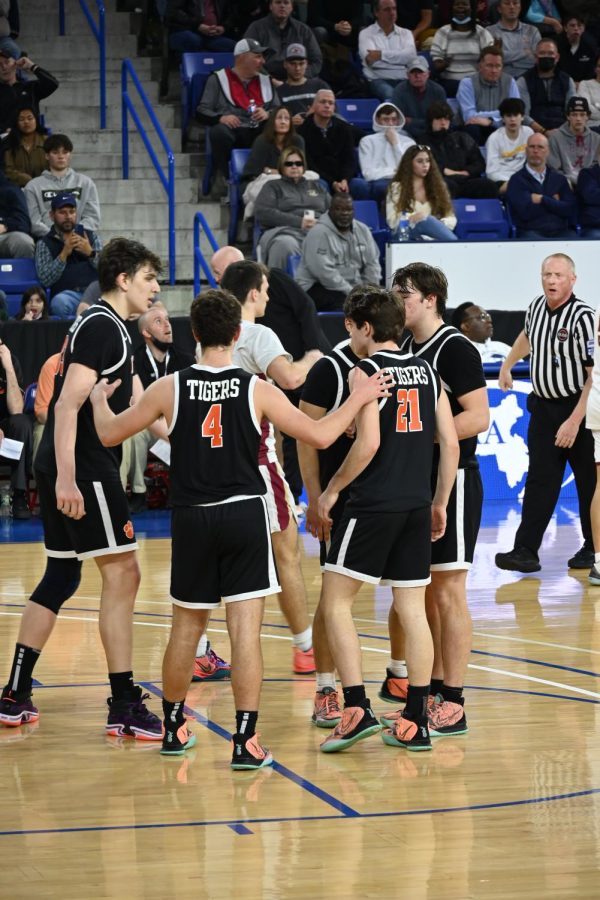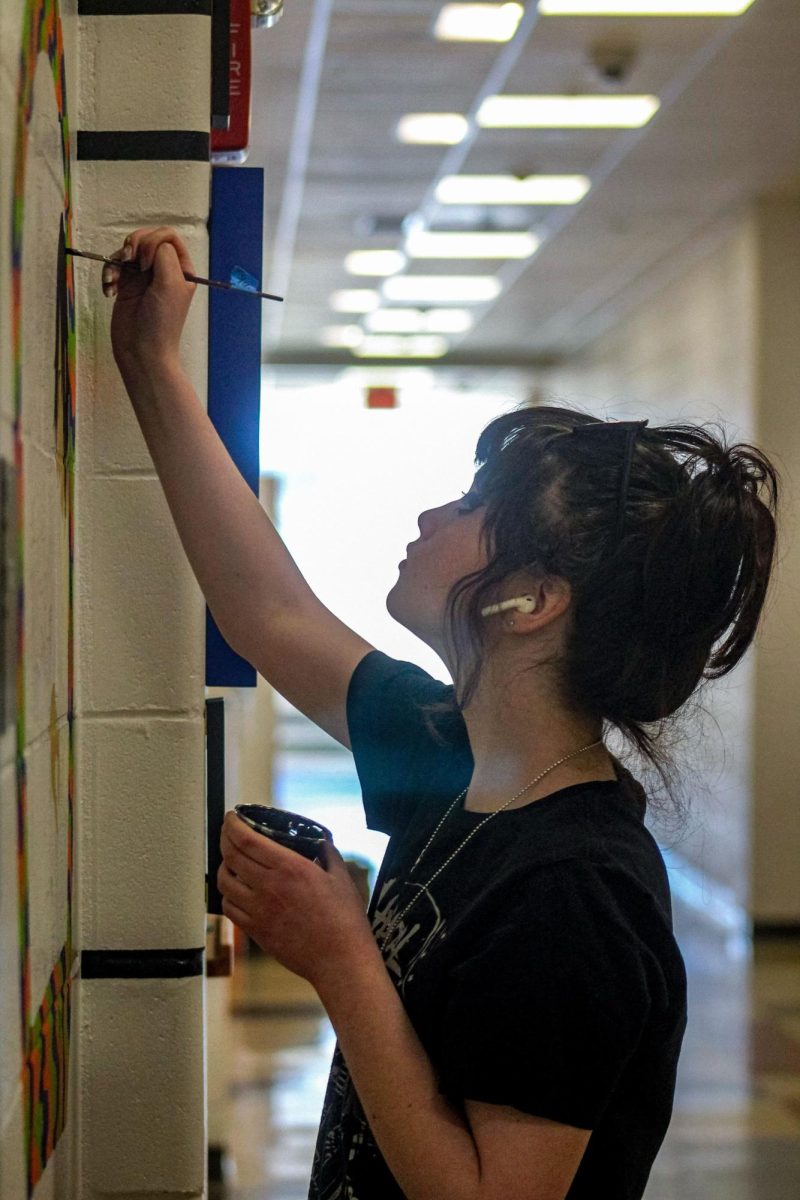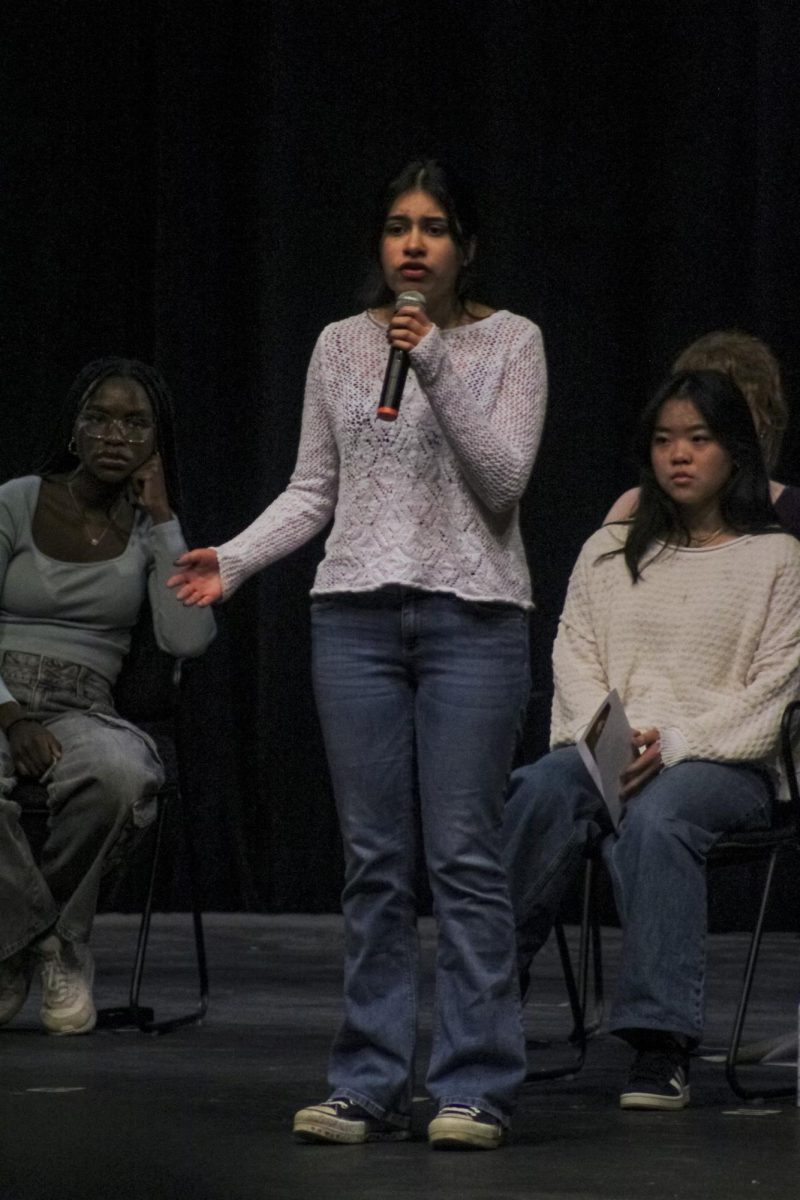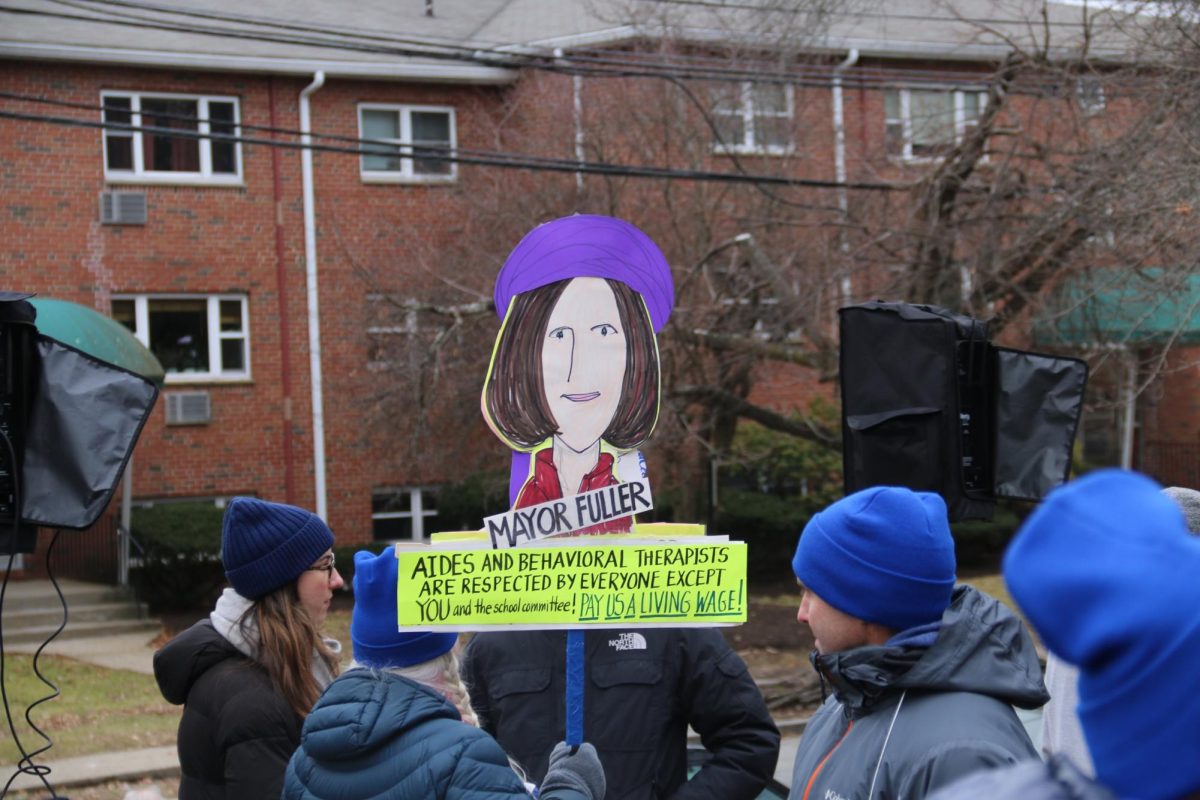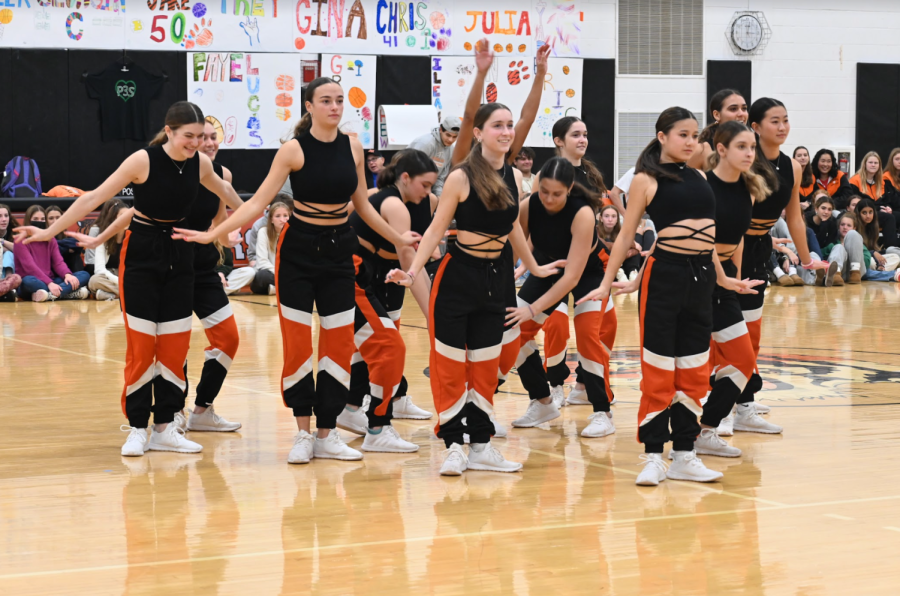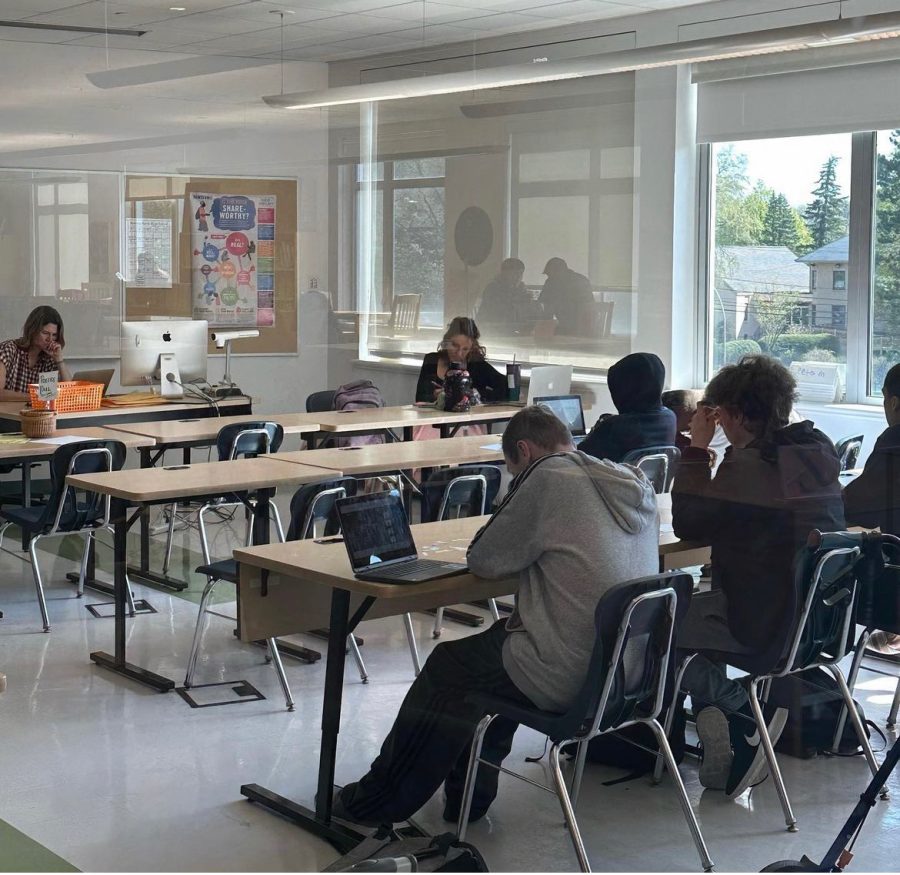 [/media-credit]
[/media-credit]
- Sophomores have been taking the English Language Arts MCAS this week.
by Julia Moss
In elementary school and middle school, it was unanimous: we all disliked the Massachusetts Comprehensive Assessment System (secretly referred to by rebellious third graders as the Massachusetts Child Abuse System) more than just about anything.
In high school, however, views on MCAS are much more mixed. While many students still find MCAS painstaking, others look forward to the test and relish the lack of homework that accompanies it.
Most Massachusetts high school students take MCAS in ninth and tenth grade. The ninth grade MCAS consists only of physics. In tenth grade, the test is more demanding. Between the testing that takes place in March and May, sophomores will write a four-page composition about literature, answer reading comprehension questions and solve math problems. Some students, such as those who did not pass MCAS in tenth grade or those who moved to this school from outside Massachusetts, take MCAS as upperclassmen.
The writing and reading sections of the test take place this week.
Sophomores, who have had their fair share of MCAS in the last few days, gave their opinions on the test.
Gabe Montague has a positive view of MCAS. “I think MCAS is awesome because we don’t get homework,” he said. “It’s not fun taking the test, but if you think about the pros and the cons, MCAS is definitely worth the free time you get in the afternoon.”
Joyani Ghosh had a similar opinion to Montague. “I love MCAS because I think it’s easy and we don’t have to go to any classes,” she said.
Isabel Rivero agreed. “I think MCAS is wonderful,” she said. “It makes my afternoons so much easier.”
Jacob Prince, who came to this school from a private school, does not have much experience with MCAS. “Coming from a private school, we never took MCAS in elementary and middle school, but we took a test called the Educational Reference Bureau test,” he explained. “So far, though, I have only taken MCAS twice, including today, I think that the positives outweigh the negatives. It’s so great having no homework.”
Lucia Arancibia has a mixed view of MCAS. Arancibia moved to the United States from Spain shortly before school started this fall, and she is living in Newton with her family for the year. Although she will be moving back to Spain over the summer, Arancibia said, she was required to take the MCAS with the rest of the Class of 2014. “They needed me to take the MCAS in case I ever want to come back and continue school here,” Arancibia explained.
Because English is her second language, Arancibia took classes offered at this school to study for the English Language Arts sections of the MCAS. At the beginning of the year, she said, she took an English Language Learning class in which she trained for the test four blocks a week. Later in the year, after becoming more comfortable with English, she switched out of the ELL MCAS program into Power English, where she also prepared for the test.
After taking the MCAS this week, Arancibia said, “It was actually okay. There were a lot of words I didn’t know, but luckily I was allowed to use an English to Spanish and a Spanish to English dictionary. I tried to look up as few words as possible.”
Overall, Arancibia said, “I can see how MCAS could be a good thing.”
Other sophomores still view MCAS negatively. Rachel Brown said that MCAS in high school is no different for her than it was in elementary and middle school—she still finds it “boring and tedious.” Brown added that she also dislikes the structure of the MCAS test. “I don’t like how they don’t have a section for grammar or a section for world language,” Brown said. “We don’t get to show what we’ve learned in these areas.”
Hannah Gallogly said she feels uncertain about the ability of the MCAS test to assess all students. “It’s funny how different MCAS is for everyone. Some kids struggle just to make it through with a passing grade while others breeze right through it,” she said. “I guess it’s sort of an interesting concept to combine all curriculum levels for the same test. I don’t know how effective it is.”
Raphael Weikart also had a relatively negative opinion about MCAS. “I don’t like how there’s only one test that the state uses,” he said. “It’s kind of like, don’t put all your eggs in one basket.”
Unfortunately for the students who dislike MCAS, the standardized testing is not going to stop any time soon. Even for sophomores who pass the MCAS and will never have to take it again, they still have the SAT’s and ACT’s in their near future. And unlike MCAS, these tests do not substitute for homework or class time. In fact, they are held on Saturdays. Sophomores, get ready for next year!


















